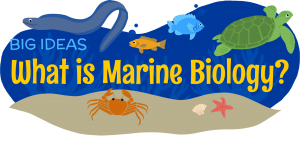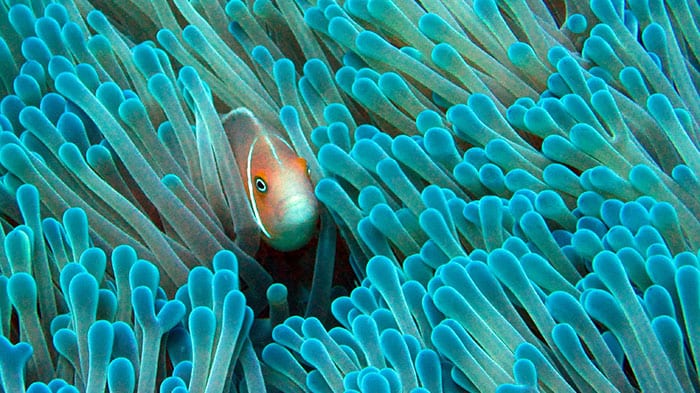Marine biology is a fascinating and diverse field of study that focuses on the study of living organisms and their interactions with the marine environment. It encompasses a wide range of topics, including the biology and behavior of marine organisms, the ecology of marine ecosystems, the conservation and management of marine resources, and the development of new technologies and products based on marine organisms.
Marine biologists study a wide variety of organisms, ranging from tiny microorganisms to large mammals, such as whales and dolphins. They study the structure and function of marine ecosystems, including the interactions between living organisms and their environment, such as the study of food webs, nutrient cycles, and biodiversity. They also investigate the biology and behavior of marine organisms, including their anatomy, physiology, genetics, and evolution. The study of marine biology is crucial for the conservation and management of marine resources, as it provides the scientific foundation for the development of conservation strategies, such as marine protected areas, and the assessment of the impact of human activities on marine ecosystems. Marine biologists play a critical role in the development of sustainable fishing practices, the mitigation of the impacts of climate change, and the protection of endangered species.
In addition to its ecological importance, marine biology has significant economic and commercial implications. Marine biotechnology, an emerging field within marine biology, involves the development of new products and technologies based on marine organisms and ecosystems. This includes the development of new drugs, materials, and bioremediation technologies. The potential applications of marine biotechnology are vast, and have the potential to revolutionize industries such as pharmaceuticals, cosmetics, and renewable energy. Marine biology is a multidisciplinary field that combines biology, chemistry, physics, geology, and ecology, among other disciplines. It is a fascinating and rapidly evolving field, with many exciting opportunities for research and discovery.

Marine biology is the study of living organisms and ecosystems in the marine environment, including the ocean, coastal areas, and estuaries. Marine biology encompasses a wide range of scientific disciplines, including ecology, genetics, physiology, and conservation biology.
Some of the key areas of marine biology include:
- Marine Ecosystems: Marine biologists study the structure and function of marine ecosystems, including the interactions between living organisms and their environment. This includes the study of food webs, nutrient cycles, and biodiversity.Marine ecosystems are complex and diverse systems that are made up of various living and non-living components, including plants, animals, microorganisms, water, and minerals. Marine biologists study these ecosystems to better understand the relationships and interactions between the organisms and their environment. One of the key areas of study within marine ecosystems is food webs. Food webs are networks of organisms that are linked together through the transfer of energy and nutrients. These networks can be highly complex, with many different species and pathways of energy transfer. By understanding these food webs, marine biologists can gain insights into how different organisms in the ecosystem depend on each other for survival and how changes in one part of the food web can impact the entire system.
Nutrient cycles are another important area of study within marine ecosystems. Nutrients such as nitrogen and phosphorus are essential for the growth of marine plants and animals, but excess nutrients can also lead to harmful algal blooms and other negative impacts on the ecosystem. Marine biologists study the processes by which nutrients are cycled through the ecosystem, including the roles of different organisms in breaking down and recycling nutrients.
Biodiversity is also a key focus of marine ecosystem research. Marine ecosystems are incredibly diverse, with a wide range of species and habitats. However, many marine ecosystems are under threat from human activities such as overfishing, pollution, and climate change. Marine biologists study the impacts of these threats on biodiversity and work to develop strategies to protect and conserve these important ecosystems. The study of marine ecosystems is critical for understanding the health and functioning of the oceans, and for developing strategies to protect and sustain these important ecosystems for future generations.
- Marine Organisms: Marine biologists study the biology and behavior of marine organisms, including fish, mammals, invertebrates, and microorganisms. This includes the study of their anatomy, physiology, genetics, and evolution.Marine organisms are a diverse group of living creatures that inhabit the world’s oceans, ranging from tiny microorganisms to massive whales. Marine biologists study the biology and behavior of these organisms, with a focus on understanding their unique adaptations to life in the ocean. Fish are one of the most well-known marine organisms and are a critical component of the ocean food web. Marine biologists study the behavior, distribution, and population dynamics of fish species to understand their ecology and inform conservation efforts.
Mammals, such as whales, dolphins, and seals, are also important marine organisms. Marine biologists study their behavior, migration patterns, and vocalizations to better understand their biology and conservation needs. Invertebrates, such as corals, mollusks, and crustaceans, are abundant in marine ecosystems and play important roles in nutrient cycling and habitat formation. Marine biologists study their anatomy, physiology, and ecology to understand their role in the ecosystem. Microorganisms, such as bacteria, viruses, and plankton, are some of the smallest but most important marine organisms. They play critical roles in nutrient cycling, oxygen production, and carbon sequestration. Marine biologists study their genetics, metabolic processes, and interactions with other organisms to understand their ecological function.The study of marine organisms is critical to our understanding of the functioning and conservation of marine ecosystems.
- Marine Conservation: Marine biologists play a critical role in the conservation and management of marine resources. This includes the development of conservation strategies, such as marine protected areas, and the assessment of the impact of human activities on marine ecosystems.Marine conservation is a critical field within marine biology, as it addresses the urgent need to preserve and protect the world’s oceans and the life within them. Marine biologists are at the forefront of developing strategies to manage marine resources sustainably and to mitigate the impacts of human activities on marine ecosystems.
One of the key areas of focus in marine conservation is the development of marine protected areas (MPAs), which are designated zones where human activity is restricted to protect marine life and habitats. Marine biologists study the effectiveness of MPAs and develop strategies to improve their management and implementation. Marine biologists also assess the impact of human activities on marine ecosystems, such as overfishing, pollution, and climate change. They use this information to develop solutions and policies to minimize these impacts and promote sustainable practices.
In addition, marine biologists work closely with other stakeholders, including policymakers, fisheries managers, and coastal communities, to ensure that conservation efforts are effective and sustainable. They also play a critical role in educating the public about the importance of marine conservation and the need to protect our oceans for future generations.
- Marine Biotechnology: Marine biotechnology is an emerging field that involves the development of new products and technologies based on marine organisms and ecosystems. This includes the development of new drugs, materials, and bioremediation technologies.Marine biotechnology is a rapidly growing field that draws upon the diverse array of marine organisms and ecosystems to develop new products and technologies that can benefit society. Marine organisms such as bacteria, algae, and sponges produce unique compounds with potential applications in the pharmaceutical industry. For example, compounds from marine organisms have been developed into drugs to treat cancer, HIV, and other diseases. Marine biotechnology also involves the development of materials that are inspired by or derived from marine organisms, such as adhesives, polymers, and coatings.
In addition to developing new products, marine biotechnology also plays an important role in bioremediation. Marine microorganisms have the ability to degrade a wide range of pollutants, including oil spills and plastic waste, making them promising candidates for developing new bioremediation technologies.
Marine biotechnology also has applications in aquaculture, the farming of aquatic organisms such as fish, shellfish, and seaweed. The use of marine biotechnology in aquaculture can improve the efficiency and sustainability of aquaculture operations, for example, by developing new feeds, improving disease resistance, and enhancing growth rates. Marine biotechnology is a promising field with vast potential for developing new products and technologies that can benefit society while also promoting the conservation and sustainable use of marine resources.
Overall, marine biology is a critical field of study that provides important insights into the functioning and health of marine ecosystems. The continued development of marine biology research and technology is critical to understanding the complex and interconnected nature of the marine environment and to developing sustainable strategies for the conservation and management of marine resources.

